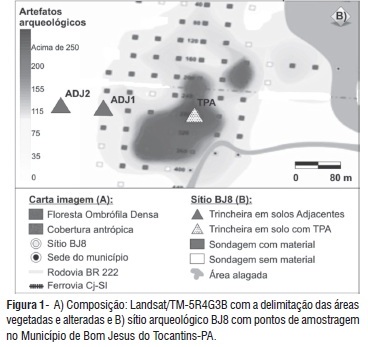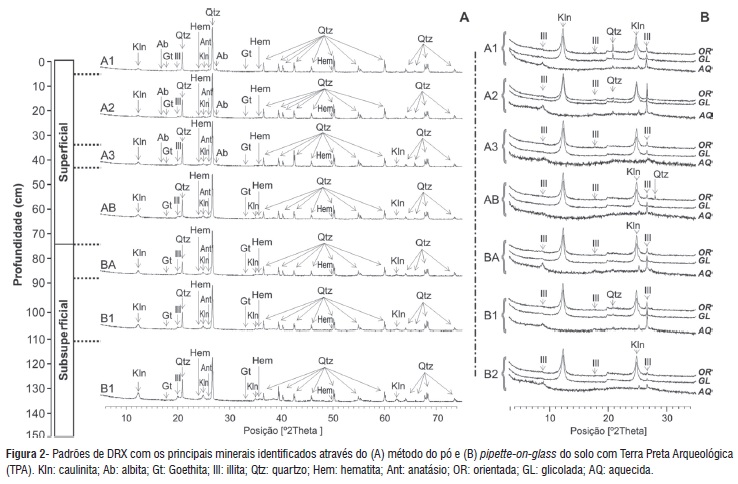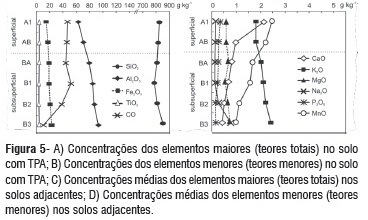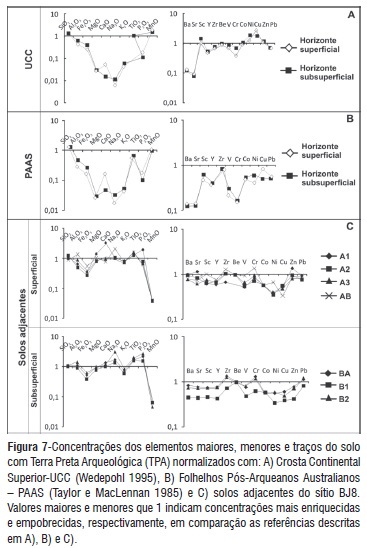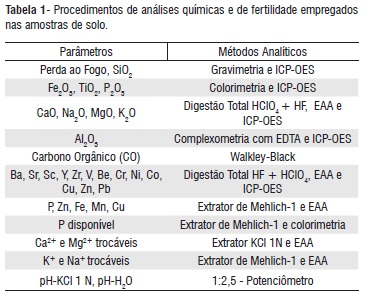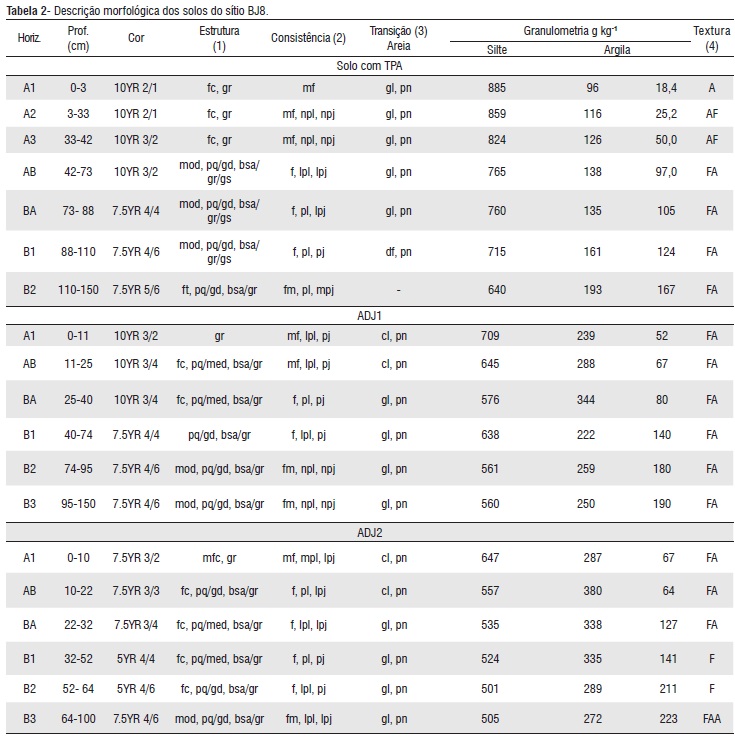The comparison of morphological, mineralogical and chemical data of a soil with anthropic horizons - Archeological Black Earth (ABE) and surrounding Argissolos (Typic Kandiudox or Ultisols) allowed the identification of the main process acting on the ABE formation from the town of Bom Jesus do Tocantins, southeastern Pará State. The similarity between the data in the subsurface horizons of ABE and surrounding soils indicates that the former was likely developed from Argissolos with later pedogenetic transformation by the input of organic and inorganic materials from ancient human settlements, which resulted in thickness of the surface horizon and higher concentrations of CaO and P2O5 (total content), Zn (trace content), available P and Zn (available content), and exchangeable Ca and Mg (exchangeable content) compared to surrounding Argissolos. Furthermore, such anthropic disturbance also resulted in changes in the subsurface horizon of Argissolos with ABE, such as high concentrations of P2O5 and available P. The Soil Taxonomy and Brazilian System of Soil Classification (BSSC) are suitable to identify soils with ABE, as they prioritize at the highest categorical level the main pedogenetic process acting on soil development and formation, related to the subsurface horizons, and later pedogenetic transformations in the surface horizon. However, this study proposes the addition of diagnostic properties such as ceramic and lithic artifacts, P2O5 and available P and Zn, organic C, Ca2++ Mg2+ (exchangeable content), CEC and base saturation in the surface horizon to classify and discriminate several kinds of anthropic soils in the Amazon region.
Mineralogy; Pre-history; Amazon region; Pedology

 Mineralogy and geochemistry of soil profiles with Archeological Black Earth from Bom Jesus do Tocantins, southeastern Amazon
Mineralogy and geochemistry of soil profiles with Archeological Black Earth from Bom Jesus do Tocantins, southeastern Amazon
